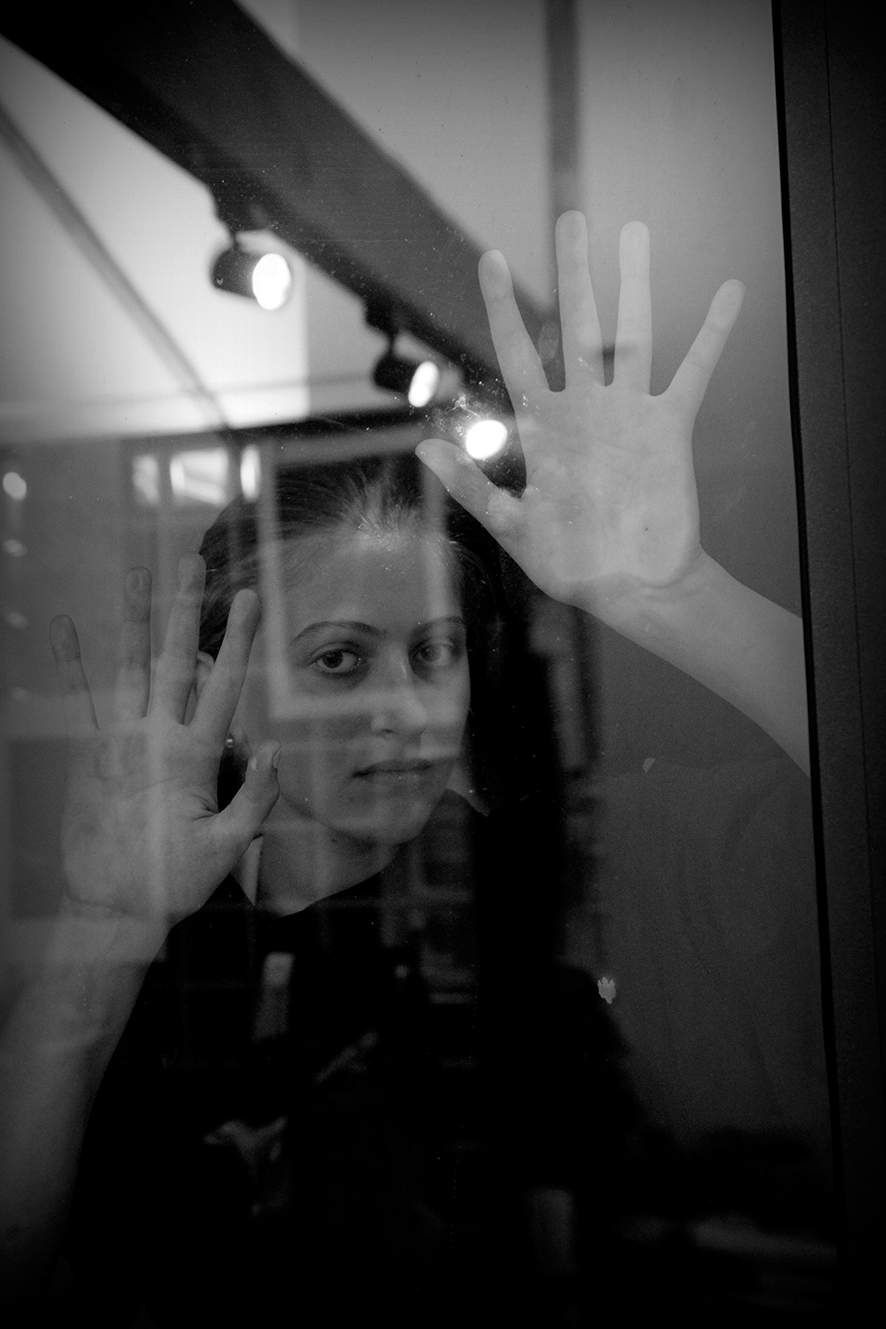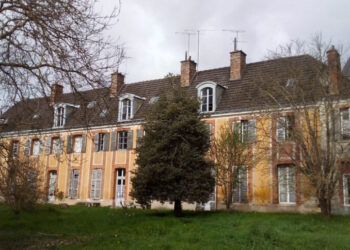At 24, Liza Chkhaidze is already building a career that crosses musical boundaries. A composer, pianist, and songwriter originally from Tbilisi, Georgia, she has written orchestral concert works, scored for television and film, performed internationally, and released electronic pop albums with her Berklee-formed band, Beyond Niagara. In 2023, she was named to the Forbes Georgia 30 Under 30 list in the culture and arts category.
Trained as a classical pianist since childhood, Chkhaidze began performing piano concertos with orchestra at the age of six. Her early studies in Georgia led to opportunities abroad, first in New York at the Long Island Conservatory, and later at the Boston Conservatory at Berklee, where she earned recognition for her solo and chamber performances. A full scholarship to Berklee College of Music allowed her to formally study film scoring, opening a new chapter in composition that now includes work for Georgian television, short films, commercial projects, and large-scale orchestral premieres.
From Child Prodigy to Multidisciplinary Composer
“I would describe myself as both a pianist and a composer whose journey began very early in Tbilisi,” Chkhaidze says. “I started experimenting at the piano as a child, and by the age of six I was already performing concertos with orchestra.”
Her musical path began with classical piano, studying with renowned Georgian professor Natalia Natsvlishvili until she was 15. She then moved to the U.S., first studying at the Long Island Conservatory in New York, and later enrolling at the Boston Conservatory at Berklee, where she performed extensively and won multiple awards, including the Honors Competition with her piano trio.
“Over time, improvisation and curiosity led me more deeply into composition,” she explains. That path ultimately led her to Berklee College of Music, where she earned formal training in orchestration and scoring for the screen.
Since then, Chkhaidze’s work has reached both concert halls and visual media. “In 2024 my orchestral and choral works were premiered at the Tbilisi State Opera and Ballet Theatre,” she says. “And in 2023, I was honored with a Forbes Georgia 30 Under 30 award.”
“Today, I balance concert music, film scoring, and songwriting. Whether I’m writing for orchestra, band, or screen, my goal is always to create music that resonates emotionally and tells a story.”
Discovering Music
When asked to recall what drew her to the piano so early, Chkhaidze says:
“What drew me to the piano was pure curiosity. As a child, I didn’t understand meaning or emotion in the way adults talk about it what I understood was logic, patterns, and the beauty of sound.”
She remembers how she would sit at the instrument and explore, sometimes improvising in the style of the composers she was supposed to be practicing. “That simple curiosity is what first pulled me into music.”
Her first public piano performance was at the age of six. “I played Elizbar Lomdaridze’s Mini Concerto for Piano and Orchestra with the Tbilisi State Opera and Ballet Orchestra,” she recalls. “I only remember it in fragments: walking on stage, bowing, looking at the conductor and the orchestra, and then suddenly it was over I was bowing again and shaking the conductor’s hand.”
Though she wasn’t nervous as a child, she admits that stage anxiety came later. “Interestingly, as I grew older and more conscious of my presence, I actually became more nervous before performances. But I’ve always found a way to face that feeling and overcome it.”

A Musical Education on Two Continents
Moving abroad at 15 to study music wasn’t just a logistical shift, it was transformational.
“Studying abroad changed my life,” says Chkhaidze. Under the mentorship of Professor Tamara Poddubnaya, she began performing internationally. “I performed in piano festivals in New York and Spain, won first prizes at the Forte International Competition and the President’s Cup, and had the opportunity to perform at Carnegie Hall, Lincoln Center, and Steinway Hall.”
She continued to flourish at Boston Conservatory, where she studied piano under Professor Michael
Lewin. “Those years were full of concerts, recitals, and chamber music,” she says. “In 2021, my piano trio won the Honors Competition, which gave us the chance to perform across Massachusetts.”
Her eventual admission to Berklee College of Music marked a turning point. “That was the first time I formally studied composition and orchestration, and it completely reshaped my path, giving me the tools to translate the improvisations and ideas I had carried with me since childhood into professional work for orchestra, film, and television.”
Inspiration, Emotion, and Storytelling
When it comes to inspiration, Chkhaidze draws from a wide range of sources, personal and imagined.
“Personal experiences matter, my first real composition came after the Tbilisi flood in 2015, when I turned shock and sadness into music,” she says. But even imagined emotional states can be fertile ground: “I can draw from the past, or even imagine what something might feel like, and turn that into sound.”
Film scoring, in particular, requires a shift in perspective. “I don’t compose ‘for the music’ the music itself isn’t the point. It’s about what the music is about: the story, the character, the unspoken subtext.”
Still, she reflects on how music can transcend even that: “If you put Bach’s music against almost any image, it will still make sense, no matter what the visual is. That shows the universality of music it can both serve a story and stand completely on its own.”
Concert music, on the other hand, “is the story.” Describing her October 2024 debut at the Tbilisi State Conservatoire, she says:
“I wrote orchestral and choral works that were not connected to an external narrative, they carried their own architecture and emotional journey.”
She values the listener’s interpretation: “The listener can interpret it in their most personal way and see what they have to see when listening.”
Beyond Niagara: Experimenting Across Genres
In late 2022, Chkhaidze co-founded the band Beyond Niagara with fellow Berklee students. The group blended electronic pop, jazz, and experimental textures.
“It started during our free time outside of classes, simply as a way to experiment with sounds we all loved,” she says. “Each of us came from a different musical background, so bringing together electronic textures, pop structures, and jazz harmonies felt natural, it was about finding a common language where those worlds could coexist.”
The band released two albums and reached audiences in both the U.S. and Europe. Though the project is currently on pause, Chkhaidze says it gave her “a different perspective on collaboration, production, and connecting with an audience outside the concert hall.”
Composing for Television and Commercials
In 2020, Chkhaidze composed the theme music for the Georgian game show “Mtavari Chkviani” on Mtavari Arkhi, one of the country’s leading TV channels. “That was probably my first real professional scoring job,” she says.
She views television composition as distinct from both concert and film work: “Television… often has its own rhythm – themes that return, music that sets the identity of the program, or short cues that frame transitions. It’s about clarity and immediacy, while still supporting the story.”
Since then, her scoring work has expanded to include various projects, including commercial music. “Right now I’m composing music for a whisky commercial, another exciting challenge where the music shapes mood, identity, and storytelling in a completely different way.”
Between Classical Discipline and Modern Freedom
Balancing classical training with modern musical styles isn’t a contradiction for Chkhaidze it’s a strength.
“For me, there’s never really been a conflict between the two it all feels connected,” she says. “My classical training gave me discipline, technique, and a deep understanding of structure… At the same time, exploring styles like electro-pop and jazz lets me approach music with freedom and curiosity.”
The balance between long-form, architecturally driven concert music and rhythm-driven modern styles “keeps me fresh,” she says. “The classical side gives depth, and the contemporary side keeps my ideas alive and flexible.”
Music with a Purpose
Recent performances have reinforced for Chkhaidze how music can serve a greater good. In Batumi, her piece Encore No. 1 for cello and piano was premiered at a fundraising concert for individuals in need of shelter. It was performed by Lizi Ramishvili and Sandro Gegechkori, both internationally acclaimed musicians.
“Having such extraordinary musicians bring my work to life in that context reminded me that music can also carry social meaning and contribute beyond the concert hall.”
Advice for the Next Generation
To young musicians in Georgia or anywhere, who dream of following a similar path, Chkhaidze offers the same guidance she would give her younger self:
“Be present, love yourself, and master your craft. Be your own parent, nurture and nourish your music and your ideas. Take risks, and don’t let doubt speak louder than what you’re going for.”
She adds: “Carry your roots proudly, but don’t be afraid to dream beyond borders, music has no boundaries, and if you stay honest and persistent, the world will find space for your voice.”
By Kesaria Katcharava














